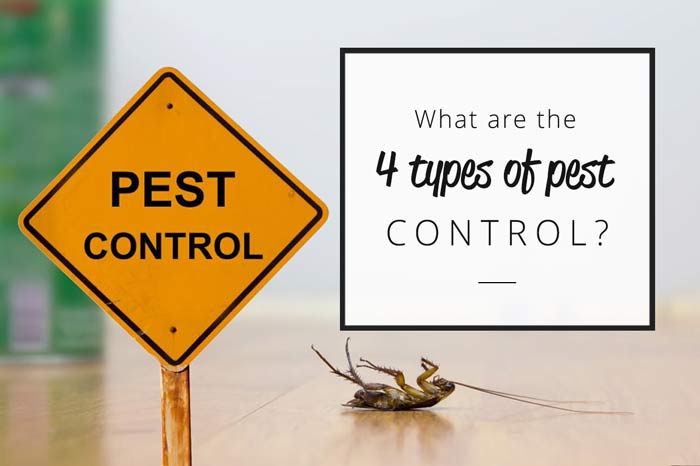Getting The Pest Control To Work
Getting The Pest Control To Work
Blog Article
Pest Control Can Be Fun For Everyone
Table of ContentsThe Facts About Pest Control UncoveredThe Ultimate Guide To Pest ControlThe Basic Principles Of Pest Control Get This Report about Pest ControlThe Buzz on Pest Control
Limitations of Chemical Management Be able to examine insect problems, establish if monitoring is needed, and make appropriate recommendations making use of IPM strategies. Be acquainted with different techniques of bug management - their benefits and restrictions.This chapter talks about (IPM), a method that makes use of knowledge concerning pests and their, methods, nonchemical approaches, and chemicals to take care of bug problems. Additional info about IPM for particular plants is consisted of in phases that focus on those plants. Nonchemical pest control measures are stressed in chapter 17, "Organic Gardening." Managing birds and creatures is covered in chapter 20, "Wildlife." Handling in the backyard and yard is covered in chapter 6, "Weeds." Bugs in a yard or landscape may consist of bugs and termites, weeds,, creatures, and birds.
Numerous people hurry to pull, hoe, or spray every weed they see. Bugs and weeds, nonetheless, contribute in the. After growing a yard or establishing a yard, the natural process of plant succession starts to reestablish and nonnative plants. A weed expanding in a yard stands for the initial stage in a series of occasions that, if allowed to continue, can ultimately lead to a forest.
What we call "insects" become part of a natural system at the workplace. An environment has no bugs. Only human beings think about certain varieties bugs when they happen where they are not desired. We will certainly be extra successful in taking care of undesirable types when we recognize that these organisms adhere to foreseeable patterns that we can make use of to our advantage.
Pest Control - Questions
Parasites susceptible to a chemical were quickly killed, leaving immune ones to breed and multiply. It became clear that chemicals alone would certainly not resolve all pest problems. Rather, overuse of pesticides caused the advancement of resistant pests. Researchers started to create a new strategy to pest control. This brand-new approach was referred to as integrated parasite monitoring (IPM).
An IPM strategy allows some degree of insects in the setting. Parasites are much less most likely to survive a program that makes use of various techniques of reducing their populations. Integrated parasite management was initial recommended by entomologists due to the fact that pests were the very first team of pests to confirm difficult to manage with chemicals alone.
A limit is the factor at which activity must be taken. IPM has actually extended past bugs to administration of all pest populaces: weeds, disease organisms, and mammals.
Unknown Facts About Pest Control
Administration instead than obliteration of insects is the objective. An IPM strategy begins with a careful assessment of each pest infestation.
Clover growing in a lawn may be considered as an unwanted weed, yet as a bean it is manufacturing nitrogen for the soil and the blossoms are supplying nectar to honey bees and other. Tolerance for some weeds may belong to an IPM plan. might be eating the leaves of a plant, yet when they are identified as the larvae of Eastern tiger swallowtail butterflies, their damage may be tolerated so we can appreciate the lovely butterfly.

The 2nd most essential device in pest administration is early intervention. Reacting to issues quickly, before they have time to increase, calls for a much less significant intervention.
The Basic Principles Of Pest Control
Lots of risk-free, functional, nonchemical techniques of plant protection and insect administration might reduce or eliminate the need to spray. Other methods are most helpful when made use of with chemicals. To apply monitoring techniques appropriately and to decrease losses, garden enthusiasts ought to recognize the kinds of bugs that assault plants and comprehend pest biology.

Carrying out a soil examination and applying only the advised amount of plant food and lime makes the most of the advantage to the plant while reducing issues associated with excessive use of fertilizer - Pest Control. Treatment the dirt with several inches of compost safeguards the plant in numerous means: lowering soil water loss to dissipation, lessening weed competitors, supplying nutrients, and producing an ideal environment for earthworms and microbes that keep the dirt loose for roots and break down natural product to this website release nutrients
If mulch touches the trunk, it can create a method for voles, microorganisms, and fungi to assault the plant. Do not utilize manure or garden compost that has not completely broken down as a leading clothing since it can encourage undesirable pests. Study suggests that tilling the soil is detrimental to dirt structure.
The Facts About Pest Control Revealed
If tilling is considered needed, think about doing it in the loss when the life process of lots of pests brings them near the surface. At the surface, insects end up being exposed to the weather condition in addition to birds and other all-natural why not try here adversaries. Autumn tilling can also ruin pests in crop deposits. Use disease-free and insect-free certified seeds and plants if offered.
Report this page